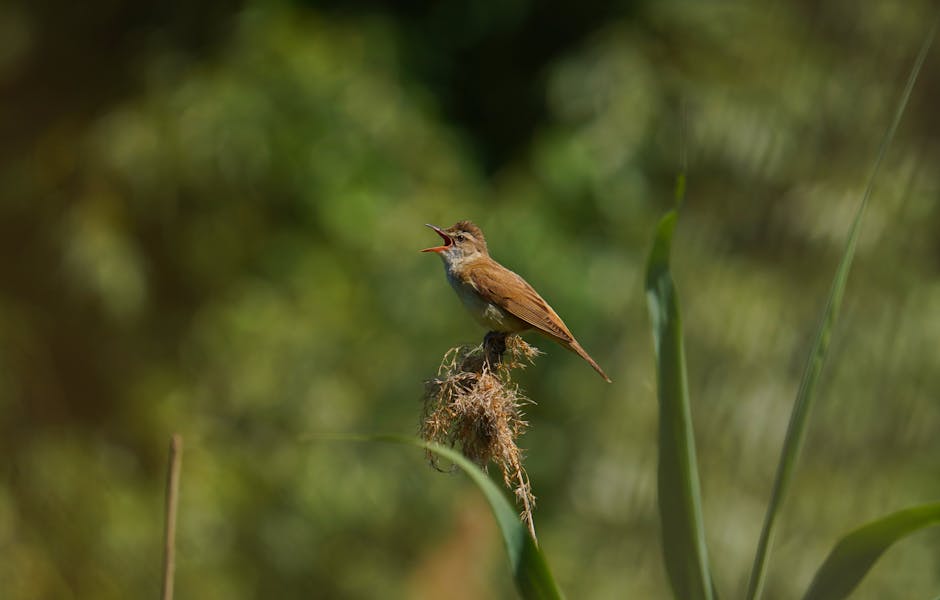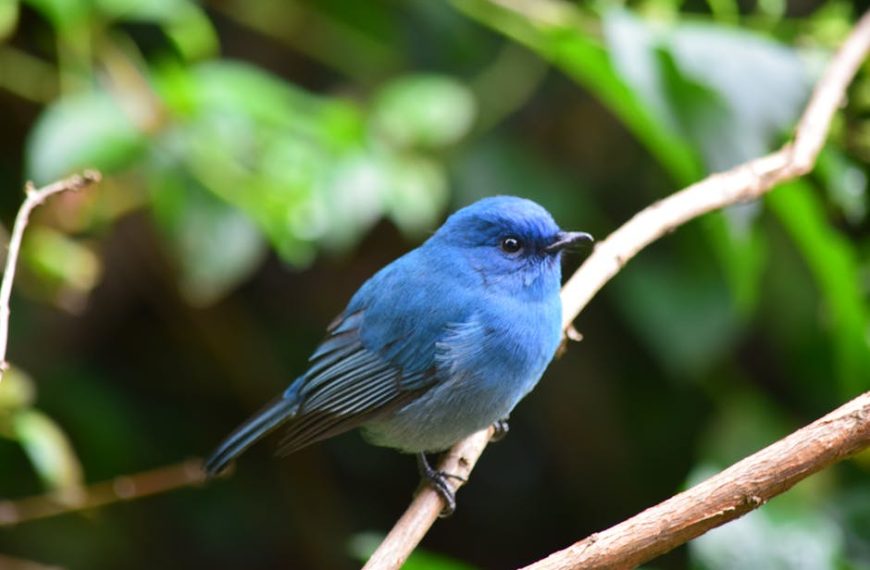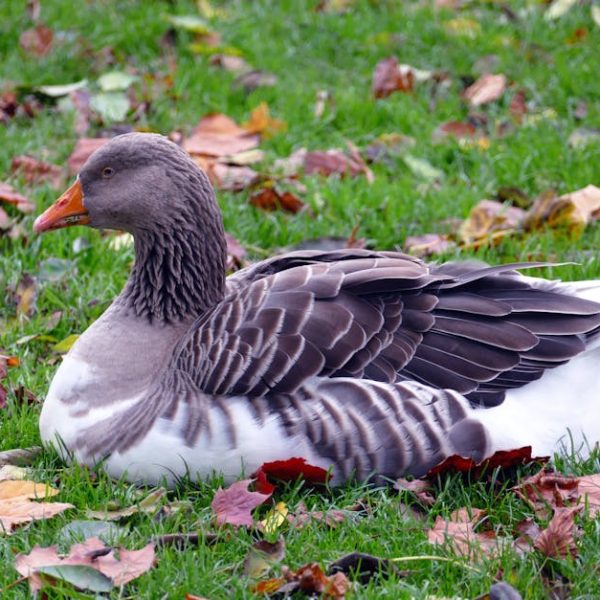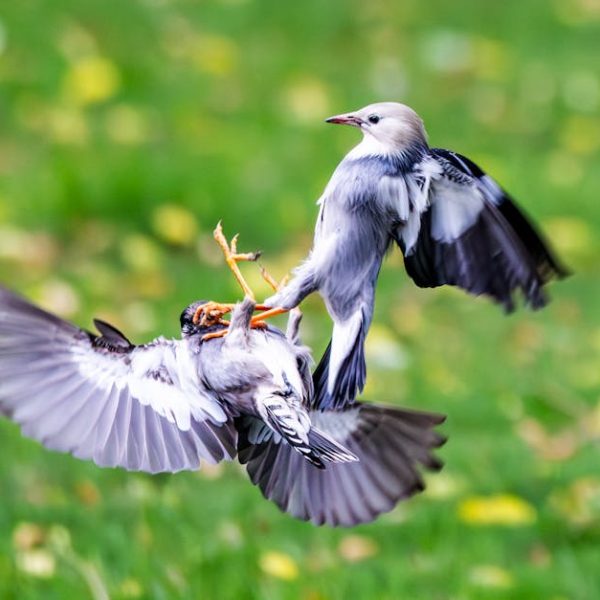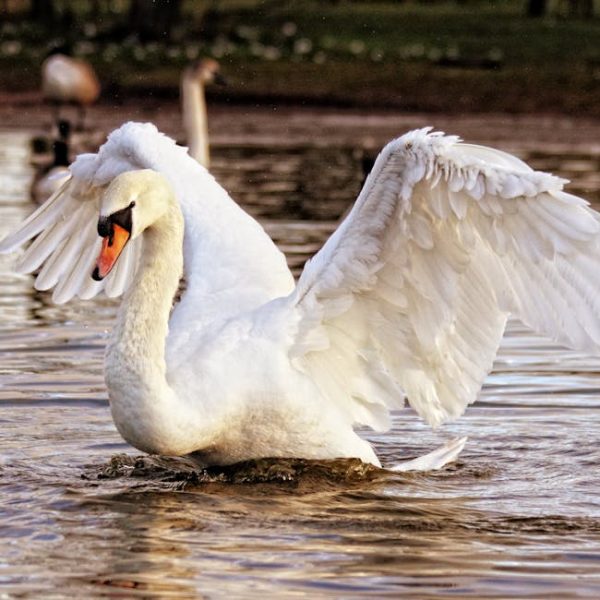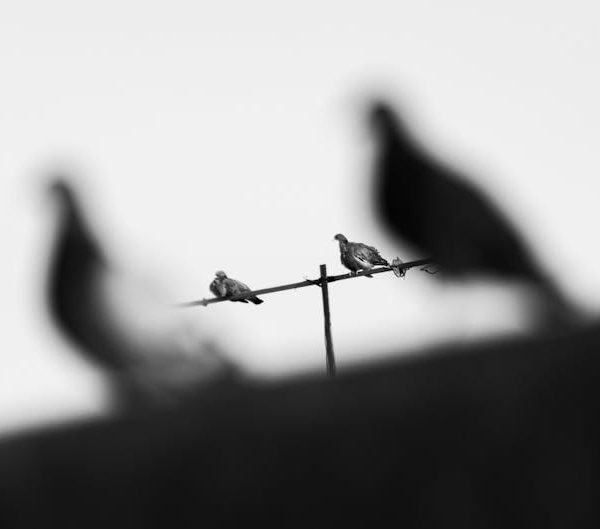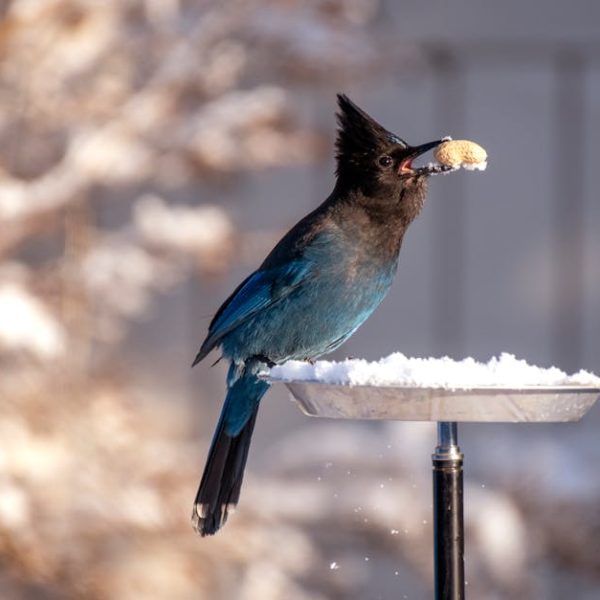As any early bird or late-night insomniac may tell you, birds aren’t always silent when we think they should be. But why do birds sometimes chirp at 2 AM, a seemingly odd time for our feathered friends to be serenading us? The answer lies in a fascinating blend of natural behaviors, human impact, and unique bird characteristics. This information isn’t just handy for trivia; understanding these behaviors can make us better neighbors to our avian friends.
Understanding Bird’s Circadian Rhythms
Birds, like humans and many other living creatures, operate on a biological clock known as circadian rhythms. These rhythms dictate essential activities such as feeding, mating, migrating, and yes, singing. But these aren’t universal across all avian species. Some birds are most active at dawn or dusk, while others operate mainly during the day or night, hence the early morning or late night chirping.
Best Practice: To better understand birds, observe their behaviors throughout different times of day. Take note of when you hear singing; you might notice patterns that identify individual species.
From the return of migratory songbirds in spring to longer daylight hours in summer, birds’ singing patterns subtly shift. Discovering these rhythms is a first step on your journey into understanding why birds chirp at 2 AM.
Pro Tip: Pay attention to seasonal changes. You might notice more nighttime bird activity during the warm months, mainly due to reproductive season and extended daylight hours.Impact of Human Urbanization and Artificial Lights
Human progress hasn’t only affected us. With urbanization and increased artificial lighting, we’ve inadvertently influenced when birds chirp. Bright city lights can confuse birds’ sense of night and day, triggering early birds to start their chorus at unconventional hours.
Urban Areas Rural Areas Nighttime Bird Activity ‘Night owls’ may be coaxed into greater activity. Lower due to natural light cycles. Checklist: Signs of human-induced changes in birds’ nighttime behaviors
- Birds chirping at odd times, like late at night or very early in the morning.
- Higher bird activity around lit up areas, such as street lights, even after dark.
- Changes in bird feeding and mating behavior influenced by altered light-dark cycles.
While city lights may create beautiful nightscape, they might be causing a symphony of inappropriate chirping. Next time you hear birdsong at 2 AM, consider whether artificial light may be the cause.
Role of Bird Species in Nighttime Chirping
Whether it’s the haunting hoot of an owl or the melodious lilt of a nightingale, we’ve all heard bird song piercing the silence of the night. This is because some birds are more prone to chirp at night compared to others. Species such as owls, nightingales, and robins are renowned for their nighttime singing, each with its unique, distinct song.
- Owls – Known for their nocturnal habits, Owls use their low, haunting hoots to locate each other in the darkness.
- Nightingales – These birds earn their name from their habit of singing at night to attract mates.
- Robins – Despite not being traditionally nocturnal, robins are often triggered by artificial lights, causing them to sing at night.
Pro Tip: Familiarize yourself with bird songs of common nocturnal species. Nighttime bird watching can become a rewarding hobby, once you start recognizing the artists behind these songs.Nightingales, Robins and the Phenomenon of Night Singing
Typically, birds like Nightingales and Robins have complex and beautiful songs that fill the night air. This isn’t just for our entertainment. Night singing can serve practical purposes such as territorial disputes, attracting potential mates, or warning others of predators.
Pros of Night Singing Cons of Night Singing Songs at night are louder, clearer and travel farther across the landscape. Singing takes energy, which might be better spent on other activities. Nocturnal chirping can successfully attract mates or fend off rivals. Birds could attract predators or reveal their location to rivals. Tips:
- Nightingales have a rich, melodious song with varied notes and rhythms. If you hear a complex song in the dead of night, it could be a nightingale!
- Robins on the other hand have a sweeter, simpler song. Listen for clear, repeated whistle-like notes.
Can We Stop Birds From Chirping at 2AM?
Birds chirping in the early hours can be a source of disturbance for some, especially for light sleepers. However, birds have rights to their natural behaviors and are not causing harm intentionally. Understanding this helps us develop a patient and compassionate approach towards our cohabiting friends.
- Using sound insulations or earplugs can help create a quieter sleep environment.
- Keeping backyards dark and turning off unnecessary outdoor lights can help maintain birds’ natural rhythm, discouraging early morning chirping.
Best Practice: Promotion of a bird-friendly environment is essential. Try to avoid any unnecessary disturbance to birds’ natural habitats, ensuring that they can carry out their behaviors without interference. Remember, a little tolerance goes a long way in living harmoniously with our avian friends.
In conclusion, nocturnal bird song, though sometimes inconvenient, offers a unique glimpse into the world of our feathered friends. Undeniably, urbanization and artificial lighting do play a part in altering birds’ singing schedule. But by understanding these factors and making small adjustments to our own behaviors, we can appreciate the symphony of the night and cohabitate peacefully with birds.
Key Takeaway:
- Birds follow circadian rhythms that govern their activities such as feeding, mating, migrating, and singing. However, these rhythms may vary based on the bird species and seasonal changes.
- Human urbanization and artificial lighting are factors that cause changes in birds’ natural behaviors, triggering them to chirp at unusual hours.
- Specific bird species like Owls, Nightingales, and Robins are known for their nighttime singing. These birds have complex song patterns which serve purposes such as territorial disputes or attracting potential mates.
- Dealing with birds chirping at early hours should involve appreciation of their rights to natural behaviors and taking considerate actions such as using sound insulations or maintaining a dark backyard to help preserve their natural rhythms.
Addressing the mystery of birds chirping at 2AM requires an understanding of how the biology of birds, human impacts, and the specific characteristics of bird species interconnect. By learning about and respecting these elements, we can appreciate the nocturnal serenade offered by our feathered friends and live in harmony with nature.
FAQs
Q: Does all bird species chirp at night or only specific ones?
A: Chirping at night is more common in certain species like owls, nightingales, and robins. However, artificial lighting can trigger other species to sing during night too.Q: Can we train birds not to sing at odd hours?
A: It’s difficult to train wild birds as they follow their natural behaviors based on instinct and biological factors. Instead, we can manage our environment to prevent disrupting their natural rhythms.Q: Does weather affect nocturnal bird activity?
A: Yes, weather conditions can influence bird activity. For instance, warm, clear nights may encourage more singing compared to cold, rainy nights.Q: Should I be worried if I hear a bird chirping in the middle of the night?
A: Not necessarily. Birds chirp at night for various reasons such as mating calls, territorial displays, or due to altered light conditions. It’s a common part of their behavior.Q: Why do birds chirp more during certain seasons?
A: Many birds chirp more during breeding seasons which often coincide with warmer months. Extended daylight hours can also lead to increased singing.Feel free to share this article with others who might be intrigued by the nocturnal serenades of birds. Explore more interesting posts about bird behavior on our website!
